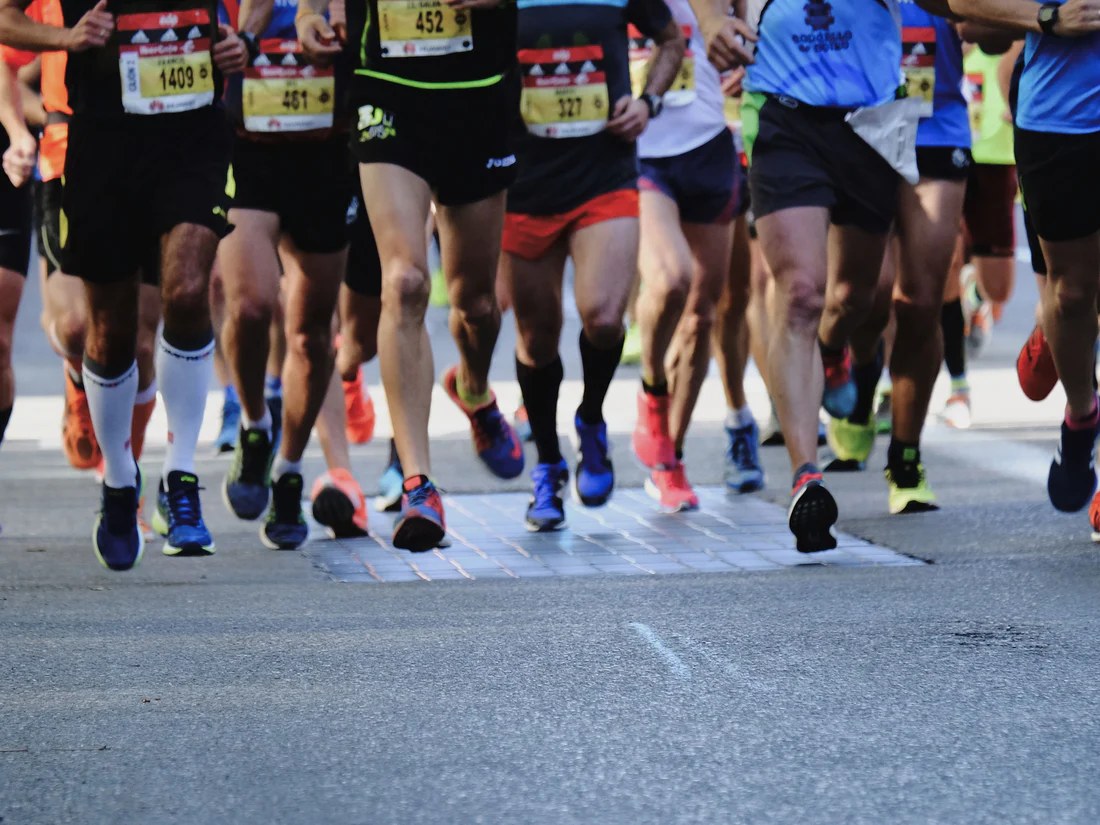Why Fueling Matters
Nothing ruins a run faster than hitting the wall—or worse, a bathroom emergency. Whether you’re a newbie or a seasoned marathoner, dialing in your nutrition can boost performance, improve recovery, and keep your mood in check. Here’s how to fuel like a pro.
Pre-Run Nutrition
-
Timing Is Everything
If your run is 2+ hours away, opt for a small- to medium-sized meal. For runs within 2 hours, stick to a snack to avoid stomach troubles. Registered dietitian Kelly Hogan, MS, RD, recommends aiming for carbs with a touch of protein: “If you’re short on time, 15–30 grams of easily digestible carbs—like toast with jam or a banana with peanut butter—can do the trick.”
-
What to Avoid
Steer clear of high-fiber or high-fat foods before running, as they can slow digestion and lead to mid-run discomfort.
During the Run
-
Short Runs (Under 60 Minutes)
For shorter efforts, water or an electrolyte drink like Nuun is usually sufficient.
-
Long Runs (60+ Minutes)
For runs over an hour, Hogan suggests consuming 30–90 grams of carbs per hour, depending on duration and intensity. “For runs longer than 2.5 hours or high-intensity efforts, aim for 90 grams of carbs per hour,” she advises. Here’s how to hit that target:
- 60–90 Minutes: Take a gel (like GU Energy Gel) or chews at the 30- or 45-minute mark. Most gels provide ~25 grams of carbs.
- 2+ Hours: Combine gels with a carb drink like Maurten 160. For example, two gels (50g) plus a packet of Maurten 160 (40g) = 90g/hour.
-
Hydration Tips
Aim for at least 16oz of fluid per hour, adjusting for weather and sweat rate. Electrolyte drinks can help replace lost sodium and prevent cramps.
Post-Run Recovery
-
The 30-Minute Window
Within 30–60 minutes of finishing, consume 15–20 grams of protein to kickstart muscle repair. Hogan adds, “Pair protein with carbs to replenish glycogen stores.” Chocolate milk or a smoothie are quick, tasty options.
-
Protein Choices
Both whey and plant-based proteins work well. Brands like Gnarly Fuel include digestive enzymes to ease absorption and prevent stomach upset.
Troubleshooting Common Issues
-
Frequent Bathroom Breaks
If pit stops plague your runs, reduce fiber and fat intake in the 24 hours before long efforts.
-
Muscle Cramps and Nausea
These often signal low electrolytes, especially sodium. Try a high-sodium hydration mix like LMNT (~1,000mg per serving) for hot or intense runs.
-
Gel Aversion
If gels and chews aren’t your thing, experiment with whole foods like dried fruit, honey packs, or even gummy bears.
Practice Makes Perfect
Fueling is personal—what works for one runner might not work for another. Test your strategy during training runs to find your sweet spot. With the right plan, you’ll feel stronger, recover faster, and enjoy every mile.



